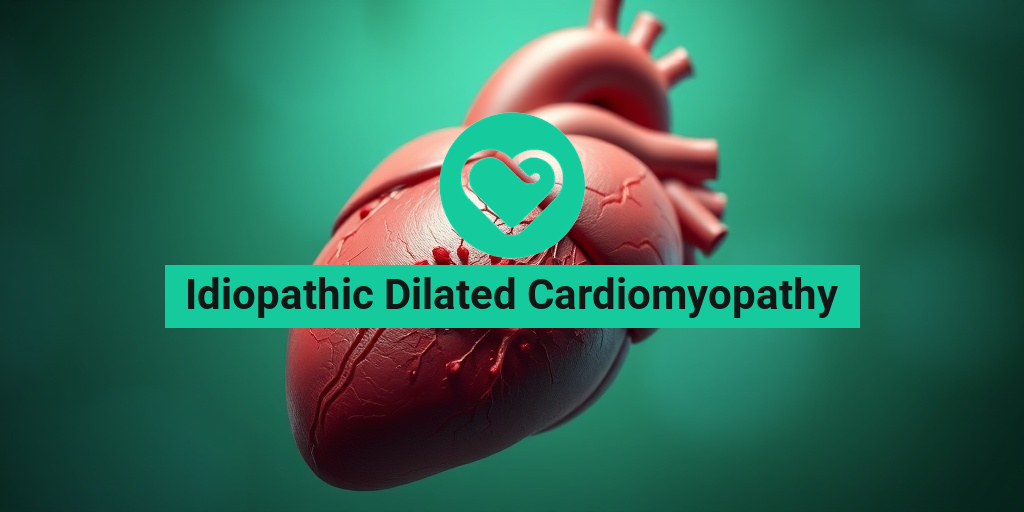What Is Egg Allergy?
An egg allergy is one of the most common food allergies, particularly in children. It occurs when the immune system mistakenly identifies proteins found in eggs as harmful substances. This triggers an allergic reaction, which can range from mild to severe. While many children outgrow this allergy, some may continue to experience it into adulthood.
Eggs are a staple in many diets, found in various foods such as baked goods, mayonnaise, and even some vaccines. Understanding what an egg allergy entails is crucial for managing symptoms and avoiding potential health risks.
Types of Egg Allergy
There are two primary types of egg allergies:
- IgE-Mediated Egg Allergy: This is the most common type, where the immune system produces Immunoglobulin E (IgE) antibodies in response to egg proteins. Symptoms can occur within minutes to a few hours after consumption.
- Non-IgE-Mediated Egg Allergy: This type involves a different immune response and may take longer to manifest. Symptoms can include gastrointestinal issues and skin reactions.
Common Egg Proteins That Trigger Allergies
The proteins in eggs that typically cause allergic reactions include:
- Ovalbumin: The most abundant protein in egg whites.
- Ovomucoid: A major allergen that is heat-stable, meaning it can still trigger reactions even after cooking.
- Ovotransferrin: Another protein found in egg whites that can cause allergic responses.
Egg Allergy Symptoms
Recognizing the symptoms of an egg allergy is essential for prompt treatment and management. Symptoms can vary widely among individuals and may include:
Common Symptoms in Babies and Children
For infants and young children, symptoms may manifest as:
- Skin Reactions: Hives, rashes, or eczema can appear shortly after consuming eggs.
- Gastrointestinal Issues: Symptoms like vomiting, diarrhea, or stomach cramps may occur.
- Respiratory Problems: Nasal congestion, sneezing, or difficulty breathing can also be signs of an allergic reaction.
Symptoms in Adults
Adults may experience similar symptoms, but they can also include:
- Anaphylaxis: A severe, life-threatening reaction that requires immediate medical attention. Symptoms include swelling of the throat, difficulty breathing, rapid heartbeat, and a drop in blood pressure.
- Chronic Skin Conditions: Some adults may develop eczema or other skin issues as a result of their egg allergy.
When to Seek Medical Attention
If you or your child experience any severe symptoms after consuming eggs, it is crucial to seek medical help immediately. Anaphylaxis can escalate quickly, and timely intervention can save lives.
For those managing an egg allergy, it’s essential to read food labels carefully and consult with healthcare professionals about safe dietary practices. Resources like Yesil Health AI can provide evidence-based answers to your health questions, helping you navigate the complexities of food allergies.
In conclusion, understanding what an egg allergy is and recognizing its symptoms can empower individuals and families to manage this condition effectively. Whether you’re a parent concerned about your child’s health or an adult navigating food allergies, knowledge is your best ally. 🥚✨

Egg Allergy in Children
Egg allergy is one of the most common food allergies in children, affecting approximately 1-2% of infants and young children. This condition occurs when the immune system mistakenly identifies proteins found in eggs as harmful, triggering an allergic reaction. Understanding the signs and symptoms of egg allergy is crucial for parents and caregivers to ensure the safety and well-being of their little ones.
Recognizing Egg Allergy Symptoms
Symptoms of an egg allergy can vary significantly from one child to another. They may appear within minutes to hours after consuming eggs. Common symptoms include:
- Skin Reactions: Hives, rashes, or eczema can develop, often appearing as red, itchy welts on the skin.
- Gastrointestinal Issues: Nausea, vomiting, diarrhea, or abdominal cramps may occur shortly after egg consumption.
- Respiratory Problems: Symptoms such as nasal congestion, sneezing, or difficulty breathing can arise, indicating a more severe reaction.
- Anaphylaxis: In rare cases, egg allergies can lead to anaphylaxis, a life-threatening reaction that requires immediate medical attention.
It’s essential for parents to monitor their children for these symptoms, especially if they have a family history of allergies. If you suspect your child has an egg allergy, consult a healthcare professional for proper testing and diagnosis.
Egg Allergy Symptoms in Babies
For infants, recognizing egg allergy symptoms can be particularly challenging, as they may not be able to communicate discomfort effectively. Common signs in babies include:
- Skin Reactions: Look for rashes or hives around the mouth or on the body.
- Digestive Distress: Frequent vomiting or diarrhea after consuming egg-containing foods.
- Behavioral Changes: Increased fussiness or irritability after eating eggs.
Introducing eggs into a baby’s diet should be done cautiously, ideally after consulting with a pediatrician, especially if there is a family history of allergies.
Causes of Egg Allergy
The exact cause of egg allergy is not fully understood, but several factors contribute to its development. Understanding these causes can help in managing and preventing allergic reactions.
Genetic Predisposition
Children with a family history of allergies, such as asthma, hay fever, or other food allergies, are at a higher risk of developing an egg allergy. Genetics play a significant role in how the immune system responds to allergens.
Immune System Response
In individuals with an egg allergy, the immune system mistakenly identifies proteins in egg whites and yolks as harmful substances. This triggers the production of immunoglobulin E (IgE) antibodies, leading to the release of histamines and other chemicals that cause allergic symptoms.
Environmental Factors
Exposure to certain environmental factors during infancy may also contribute to the development of egg allergies. These factors can include:
- Early Exposure: Introducing eggs too early or too late in a child’s diet may influence the likelihood of developing an allergy.
- Dietary Patterns: A diet lacking in diversity during early childhood may increase the risk of food allergies.
- Microbiome Health: An imbalance in gut bacteria may affect the immune system’s response to allergens.
Understanding the causes of egg allergy can help parents make informed decisions about their child’s diet and health. If you suspect your child has an egg allergy, it’s crucial to seek guidance from a healthcare professional for appropriate testing and management strategies.

Risk Factors for Egg Allergy
Egg allergy is one of the most common food allergies, particularly in children. Understanding the risk factors associated with this allergy can help parents and caregivers take preventive measures. Here are some key factors to consider:
Age
Egg allergies are most prevalent in infants and young children. Many children outgrow this allergy by the age of five, but some may continue to experience symptoms into adulthood. If your child has a history of food allergies, they may be at a higher risk for developing an egg allergy.
Family History
A family history of allergies can significantly increase the likelihood of developing an egg allergy. If parents or siblings have allergies, the risk for the child is elevated. This genetic predisposition can extend to other allergies, such as peanut or tree nut allergies.
Other Allergies
Children with existing allergies, such as hay fever or eczema, are more likely to develop an egg allergy. The immune system of these children may be more sensitive, making them prone to allergic reactions to various foods.
Timing of Introduction
The timing of introducing eggs into a child’s diet can also play a role in the development of an egg allergy. Recent studies suggest that introducing eggs early in life, around 4-6 months, may reduce the risk of developing an allergy. However, this should always be done under the guidance of a pediatrician.
Geographic Location
Interestingly, the prevalence of egg allergies can vary by geographic location. Some studies indicate that children in urban areas may have a higher incidence of food allergies compared to those in rural settings. This could be due to environmental factors, dietary habits, or exposure to allergens.
Diagnosing Egg Allergy
Diagnosing an egg allergy can be a complex process, as symptoms can vary widely among individuals. Here’s a breakdown of how healthcare professionals typically approach the diagnosis:
Medical History
The first step in diagnosing an egg allergy is a thorough medical history. Your doctor will ask about your symptoms, when they occur, and any potential triggers. It’s essential to provide detailed information about your diet and any previous allergic reactions.
Physical Examination
A physical examination may be conducted to check for signs of an allergic reaction, such as skin rashes or respiratory issues. This examination can help the doctor understand the severity of the allergy and its impact on your health.
Allergy Testing
There are two primary types of allergy tests used to diagnose an egg allergy:
- Skin Prick Test: A small amount of egg protein is placed on the skin, and the skin is pricked to allow exposure. If a raised bump appears, it may indicate an allergy.
- Blood Test: This test measures the level of specific IgE antibodies in the blood that are produced in response to egg proteins. Elevated levels can suggest an allergy.
Oral Food Challenge
In some cases, an oral food challenge may be necessary to confirm the diagnosis. This involves consuming small amounts of egg under medical supervision to monitor for any allergic reactions. This test is considered the gold standard for diagnosing food allergies but should only be performed in a controlled environment due to the risk of severe reactions.
Consultation with an Allergist
If you suspect an egg allergy, consulting with an allergist is crucial. They can provide specialized testing and guidance on managing the allergy effectively. An allergist can also help determine if the allergy is likely to be outgrown or if it may persist into adulthood.
Understanding the risk factors and the diagnostic process for egg allergies can empower individuals and families to manage this condition effectively. If you or your child exhibit symptoms of an egg allergy, seeking medical advice is essential for proper diagnosis and treatment. 🥚✨

Managing Egg Allergy
Living with an egg allergy can be challenging, especially for those who are newly diagnosed. Understanding how to manage this condition is crucial for maintaining a healthy lifestyle while avoiding potential allergens. Here are some effective strategies to help you navigate life with an egg allergy.
Identifying Egg Allergy Symptoms
Recognizing the symptoms of an egg allergy is the first step in managing it effectively. Symptoms can vary widely among individuals and may include:
- Skin Reactions: Hives, rashes, or eczema can occur shortly after consuming eggs.
- Respiratory Issues: Symptoms like nasal congestion, sneezing, or difficulty breathing may arise.
- Gastrointestinal Distress: Nausea, vomiting, or diarrhea can be common reactions.
- Anaphylaxis: In severe cases, exposure to eggs can lead to a life-threatening reaction requiring immediate medical attention.
For parents, it’s essential to monitor egg allergy symptoms in babies closely, as they may not be able to communicate their discomfort effectively. If you suspect your child has an egg allergy, consult a healthcare professional for proper testing and diagnosis.
Avoiding Egg Products
The most effective way to manage an egg allergy is to avoid all egg-containing products. This includes not only obvious sources like scrambled eggs or omelets but also hidden ingredients in processed foods. Here are some common foods to watch out for:
- Baked goods (cakes, cookies, bread)
- Mayonnaise and salad dressings
- Processed meats (some sausages and hot dogs)
- Certain sauces and gravies
Always read food labels carefully, as eggs can be listed under various names, such as albumin, globulin, or lecithin. When dining out, don’t hesitate to ask restaurant staff about ingredients to ensure your meal is safe.
Creating an Allergy Action Plan
Having a well-defined allergy action plan is essential for anyone with an egg allergy. This plan should include:
- Emergency Contacts: List of contacts, including your doctor and local emergency services.
- Medication: Keep antihistamines and an epinephrine auto-injector on hand in case of accidental exposure.
- Education: Educate family, friends, and caregivers about your allergy and how to respond in case of an emergency.
By being prepared and informed, you can significantly reduce the risk of accidental exposure and manage your egg allergy more effectively.
Egg Allergy Treatment Options
While the primary treatment for an egg allergy is avoidance, there are several options available to help manage symptoms and improve quality of life. Here’s a closer look at some of the most common treatment strategies.
Medications for Symptom Relief
If you accidentally consume eggs and experience mild symptoms, over-the-counter medications can help alleviate discomfort. Common options include:
- Antihistamines: These can help reduce itching, hives, and other allergic reactions.
- Corticosteroids: In some cases, a doctor may prescribe corticosteroids to manage inflammation.
For severe reactions, such as anaphylaxis, an epinephrine auto-injector is crucial. Always carry it with you and ensure that those around you know how to use it in case of an emergency.
Allergy Testing and Diagnosis
Consulting an allergist for comprehensive testing can provide valuable insights into your egg allergy. Skin prick tests and blood tests can help determine the severity of your allergy and guide treatment options. Understanding your specific triggers can also help you avoid accidental exposure.
Oral Immunotherapy
In recent years, oral immunotherapy has emerged as a potential treatment for food allergies, including egg allergies. This approach involves gradually introducing small amounts of egg protein into the diet under medical supervision. The goal is to desensitize the immune system, reducing the severity of allergic reactions over time. However, this treatment is not suitable for everyone and should be discussed with a healthcare provider.
Support and Resources
Living with an egg allergy can feel isolating, but support is available. Consider joining local or online support groups where you can share experiences, recipes, and tips with others facing similar challenges. Additionally, many organizations provide resources and educational materials to help you navigate your allergy safely.
By understanding your egg allergy and exploring treatment options, you can lead a fulfilling life while managing your condition effectively. Remember, knowledge is power! 💪

Frequently Asked Questions about Egg Allergy
What is an Egg Allergy?
An egg allergy is an immune response to proteins found in eggs, which can lead to various allergic reactions. It is most common in children but can also affect adults.
What are the symptoms of Egg Allergy?
Symptoms of an egg allergy can vary widely and may include:
- Skin reactions such as hives or rashes
- Gastrointestinal issues like nausea or diarrhea
- Respiratory problems, including nasal congestion or difficulty breathing
- Anaphylaxis in severe cases, which is a life-threatening reaction
How can I identify Egg Allergy symptoms in babies?
In babies, egg allergy symptoms may manifest as:
- Skin rashes or eczema
- Gastrointestinal discomfort, such as vomiting
- Swelling around the face or mouth
If you suspect your baby has an egg allergy, consult a pediatrician for proper evaluation.
What treatments are available for Egg Allergy?
The primary treatment for an egg allergy is strict avoidance of eggs and egg-containing products. In cases of accidental exposure, antihistamines may help alleviate mild symptoms. For severe reactions, an epinephrine auto-injector may be necessary.
Can Egg Allergy be outgrown?
Many children outgrow their egg allergy as they age, but this is not guaranteed. Regular follow-ups with an allergist can help monitor the situation and determine if reintroduction is safe.
Is there a connection between Egg Allergy and vaccines?
Some vaccines contain egg proteins, which can be a concern for individuals with an egg allergy. However, many vaccines are available in egg-free formulations. Always consult your healthcare provider regarding vaccine options if you have an egg allergy.
What is the Egg Allergy Ladder?
The egg allergy ladder is a method used by allergists to gradually introduce egg proteins to individuals with an egg allergy. This approach aims to help the immune system tolerate eggs over time, but it should only be done under medical supervision.
Can adults have Egg Allergy symptoms?
Yes, adults can develop egg allergy symptoms even if they have previously consumed eggs without issues. Symptoms in adults may include skin reactions, gastrointestinal distress, or respiratory problems.
What should I do if I suspect an Egg Allergy?
If you suspect that you or your child has an egg allergy, it is crucial to seek medical advice. An allergist can perform tests to confirm the allergy and provide guidance on management and treatment options.




